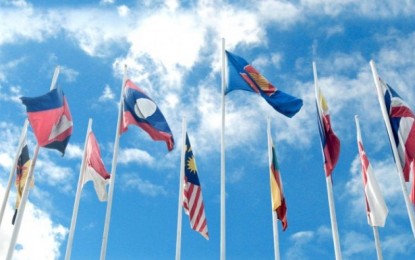
(Courtesy of Asean.org)
MANILA – The use of new agricultural technologies is crucial in strengthening climate resilience in the Association of Southeast Asian Nations’ (Asean), President Ferdinand R. Marcos Jr. said on Friday.
In an intervention speech at the 41st Asean Summit Retreat in Phnom Penh, Cambodia, Marcos said the regional bloc could address the climate crisis by improving its cooperation mechanism on environmental sustainability and holistic green economic strategies.
Marcos said the Asean must take advantage of technological innovations to boost food security cooperation and ensure self-sufficiency in the region.
"We need to shift our paradigm from the old, traditional farming methods to climate-smart agricultural systems, to better shield us against the ongoing adverse effects of climate change," he told his fellow Southeast Asian leaders.
Marcos issued the statement as he emphasized that protecting the environment and ensuring the Philippines' resiliency and adaptation to the new normal of climate change are on top of his national agenda.
"The measures we seek to undertake hopefully will enable us to become smarter, more responsible, more sustainable in all that we do," he said.
Collective responsibility
Marcos emphasized that addressing climate change is a "collective responsibility" of all nations, with developed countries playing a bigger role in global efforts to mitigate its risks and effects.
“Developing countries are more vulnerable, lose more when these climate shocks hit, and have fewer resources to cope with the adverse effects of these shocks," he added.
During the 40th Asean Summit Plenary also held Friday, Marcos called for Southeast Asian nations’ united voices to address the climate crisis, as well as for the fulfillment of their obligation to attain carbon neutrality by 2050.
The Asean, he said, must continue supporting the Asean Center for Biodiversity (ACB) in its efforts to conserve, protect, and advocate for the sustainable use of biodiversity and adopt evidence-based approaches to climate change.
The ACB, established in 2005, is the Asean’s response to the challenge of biodiversity loss.
It is an intergovernmental organization that facilitates cooperation and coordination among the 10 member states and with regional and international organizations on the conservation and sustainable use of biological diversity, and the fair and equitable sharing of benefits arising from the use of such natural treasures. (PNA)
